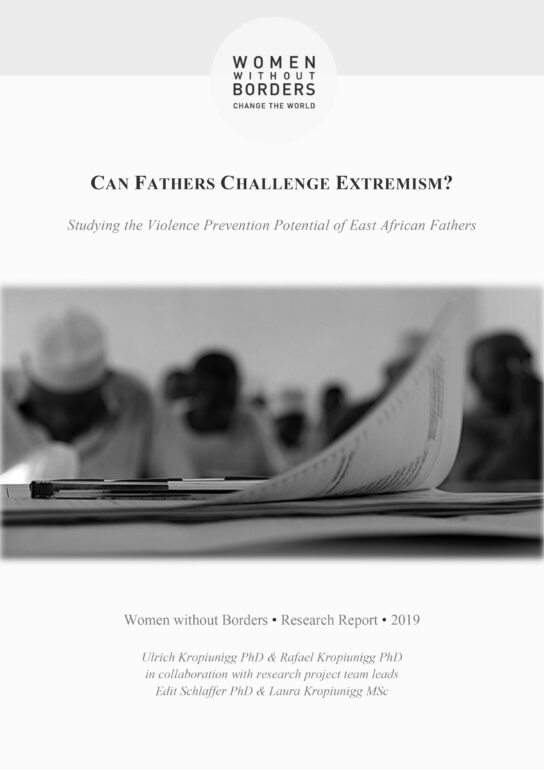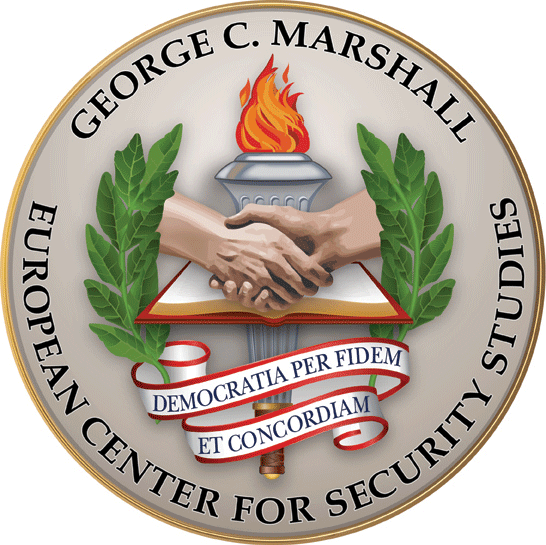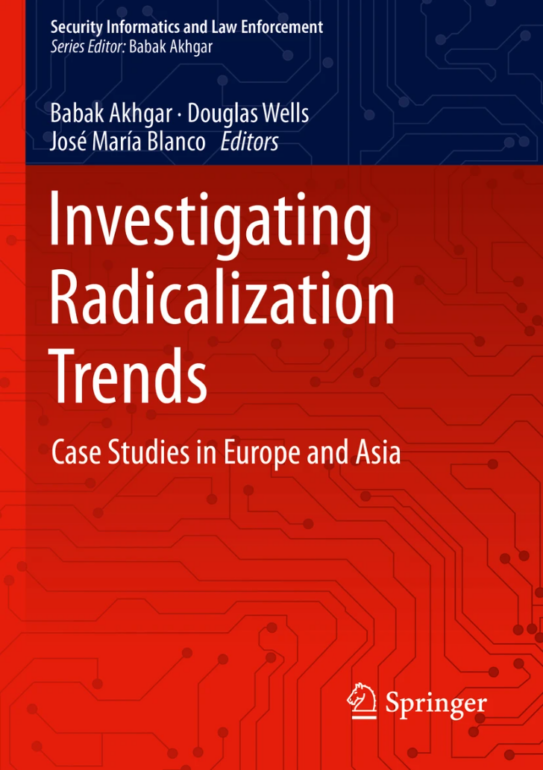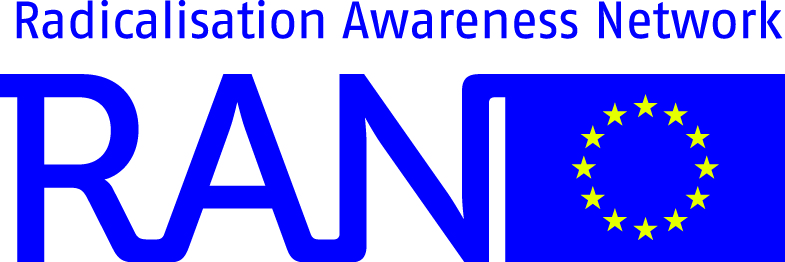Women without Borders (WwB) observed some 800 fathers’ attitudes towards, perceptions of, and experiences with radicalisation and violent extremism in the East African countries of Uganda and Zanzibar, Tanzania. The research sheds light on the glaring absence of fathers in family-centred violence prevention efforts. WwB is applying the findings to advance its ‘FatherSchools: Parenting for Peace’ Model.
Parental roles and responsibilities in preventing and countering violent extremism (P/CVE) have received insufficient attention from scholars and practitioners alike. Where attempts to identify the possible or proven potential of families has been observed in this respect, however rare, the emphasis has tended to rest on the agency of women, and on women as mothers in particular. In stark contrast to their female counterparts, fathers and their safeguarding potential has remained unchartered territory in the field of P/CVE. A number of factors, including the assumption of fathers as barriers to prevention efforts, have had the undesired effect of further isolating them as subjects of enquiry.
As the first evidence-based analysis of the prevention potential of fathers, this study sets out to determine whether men with adolescent and young adult children are a missing link in the prevention sphere, asking: If fathers do indeed present an obstacle, what can be derived from a deeper understanding of their parenting styles and experiences with, perceptions of, attitudes towards, and difficulties in addressing extremism? Might a heightened understanding of their conceptions of parenting and safeguarding potential lead to a more complete security architecture? Could fathers thus become a part of the solution; the missing link in family-based prevention strategies in the East African context, and perhaps beyond? We thus probe fathers’ perceptions of their safeguarding responsibility, experiences with radicalisation, and perceived barriers to realising their prevention potential.
Applying a multiple step and mixed methods research approach, this study pursues the above questions by engaging fathers across Zanzibar and Uganda. The research team conducted semi-structured interviews and processed the resulting discussion transcripts using a qualitative data analysis (QDA) method. The findings subsequently were applied to develop contextualised survey questionnaires for each country. These surveys were disseminated to over six hundred fathers in both countries. Our results are presented in the following report, which draws on all qualitative and quantitative data collected in the course of the research project. This research study’s evaluation of East African fathers offers a more complete understanding of fathers’ overlooked prevention potential than hitherto has been attempted.
The survey fathers consider violent extremism to be an everyday reality shrouded in secrecy, contend that their children conceivably could be impacted as victims or perpetrators, and perceive youth involvement in extreme political groups to be the most common criminal activity. Despite identifying a lack of parental guidance as the greatest risk factor, fathers exhibit split self-confidence and decidedly are ambivalent towards and insecure about a number of parenting and security issues; they are evenly divided on key topics like their innate parenting talent and ability to recognise early warning signs of radicalisation. Yet the fathers’ conviction that both parents are viewed as the chief discussion partners for their children when problems arise points to their access and authority as effective intervention and prevention actors. Not only are fathers most highly in favour of receiving training in parenting skills and support from social organisations when contemplating their children’s safety; they also issue a clear mandate: at present and above all others, fathers are the ones who need to increase their engagement to safeguard the youth.





